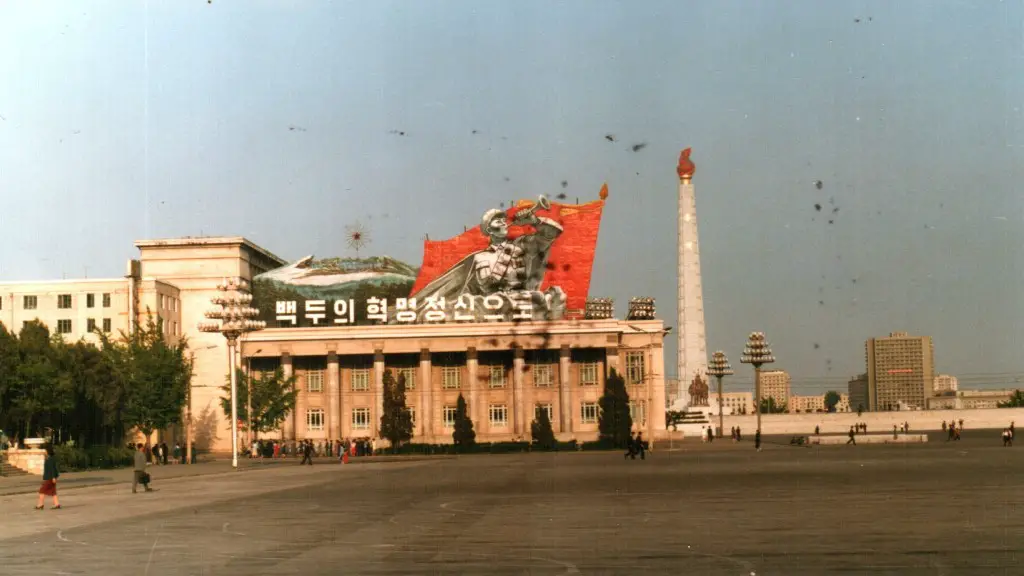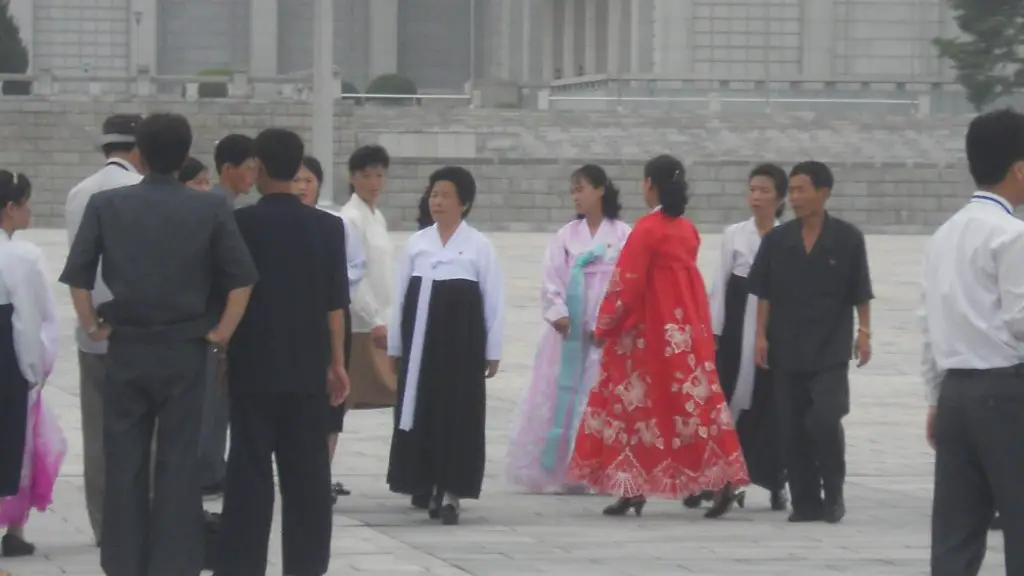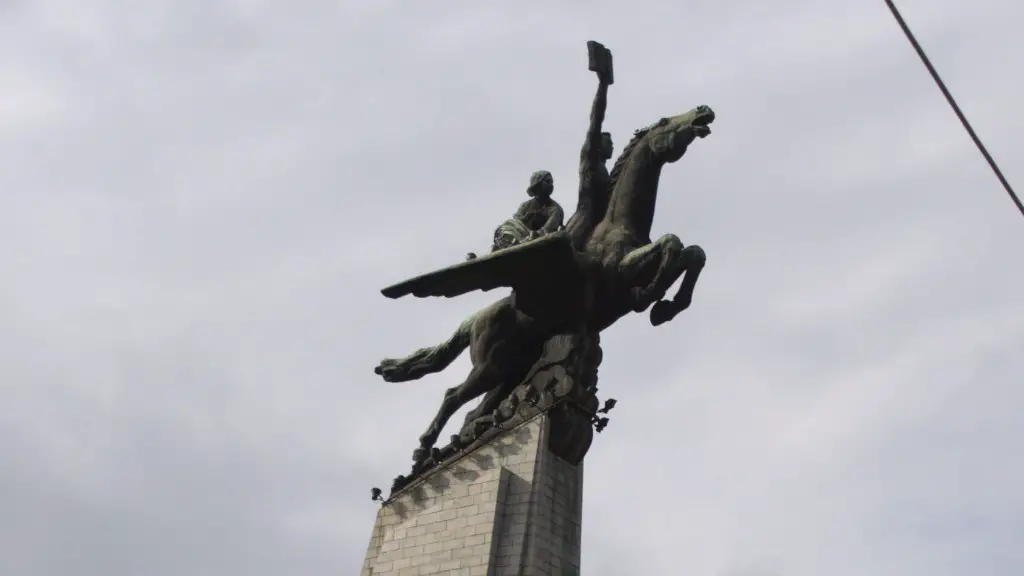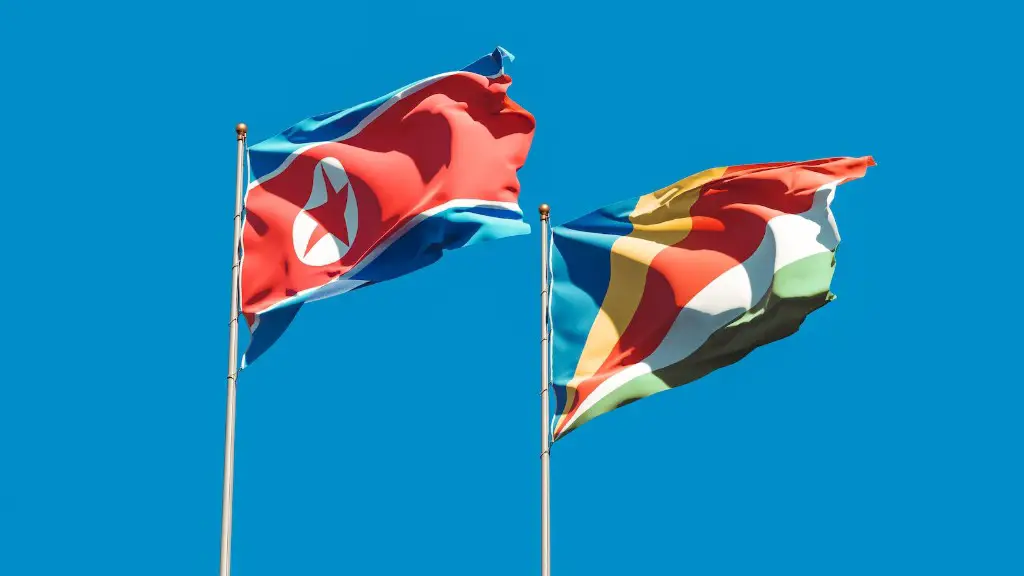Background Information
North Korea is one of the most secretive and authoritarian states on the globe. Since its establishment in 1948, North Korea has been controlled by a single family and operates a strict, hierarchical and centrally controlled system. Laws present in North Korea aim to restrict the population and keep the regime’s influence over citizens. With this, the country is renowned for its widespread and systematic human rights violations, wide propaganda strategies and closed-off relations with the outside world.
Prior to the Korean War
Prior to the Korean War in the 1950s, North Korea was carrying out a level of strictness comparable to other Korean Confucian societies. Measures and customs implemented by the Confucian society such as the Confucian fundamentalist approach to the people, contributed to the authoritarian and dictatorial society that North Korea is today. During this period, the North Korean Government enforced strict rules on social behavior and public practice, whilst demanding a strict adherence to state interests.
The Kim Dynasty
The Kim dynasty, which began with Kim Il Sung in 1948, used the war to gain more control over the North Korean population and created an atmosphere of fear to maintain power. Post-Korean War, North Korea became an isolated state, both politically and economically. This has been instrumental in the consistent strictness in the country.
After the death of Kim Il-Sung in 1994, the tight security of North Korea has only gotten worse under the dictatorship of Kim Jong-Il and later, his son Kim Jong-Un. The Kim regime has continued to strengthen the country’s control over its citizens. They have increased the surveillance and censorship measures throughout the country.
Censorship
Censorship is highly enforced in North Korea, with access to the internet and foreign media being strictly monitored and highly restricted. The government restricts access to all forms of media, including the internet, radio, and television. North Koreans are banned from using the internet, except for authorized government-controlled sites. In addition, all communications are strictly monitored, including phone calls and mail.
Human Rights Violations
North Korea has been accused of the worst human rights abuses in the world. Human rights include conditions of freedom from arbitrary arrest, torture or other cruel, inhuman or degrading treatment or punishment, and freedom from slavery, servitude, or forced labor. The North Korean government has been accused of using harsh prison camps, torture, public executions, arbitrary detentions, forced labor and malnutrition.
Freedom of expression is severely restricted in North Korea. The government routinely suppresses criticism, exerts complete control over the media, limits access to outside information, and monitors all forms of communication. Repressive laws are used to punish peaceful dissent and ensure that citizens cannot organize themselves to bring about change.
Political Posturing
North Korea’s strictness also stems from its foreign policy. In an effort to appear strong and influential, North Korea has adopted a belligerent attitude towards its neighbors as well as the United States. The country has made several threats of military action and conducted various missiles tests in the past, leading to further international tension.
The threats from North Korea have included missiles strikes on the United States and its allies. This has led to an increase in tension and military presence in the Korean Peninsula, which in turn has led to further austerity for North Korean people.
Sanctions
The international sanctions imposed on North Korea are instruments of control used to ensure it remains a strict and isolated nation. US and United Nations sanctions have been placed on North Korea to control its nuclear and missile programs as well as to restrict the flow of imports and exports. These sanctions have taken a toll on the North Korean economy, furthering the country’s isolation in the international community while raising the cost of living and leaving the country in a state of poverty.
Visible Impacts
The strictness of North Korea is visible in all aspects of its society. Even on the streets, scrutiny and surveillance are all around. The people are warned not to engage with foreigners or to take photographs or other such activities which are, naturally, punishable crimes. North Koreans cannot speak or express themselves freely as the government still imposes heavy control over what is said and done.
North Korea’s strictness also extends to its education system. Students are expected to perform their best in school and in obedience to leaders. Education is seen as a way to cultivate loyalty to the country and its regime, and to root out dissent and disrespectful thinking.
A Rose-Tinted View
Despite the signs of extreme surveillance and social control, North Korea is not entirely without advantages. North Korea is one of the most crime-free countries in the world, with the vast majority of its citizens adhering to the regulations of the state. This can be seen in the country’s low levels of drug trafficking, but also in its political stability. North Korea has remained a tightly controlled regime and has avoided the vast majority of civil unrest and violent uprisings that have plagued other authoritarian regimes.
International Perception
Many countries view North Korea with distaste, particularly due to its human rights record and international isolationism. However, there is growing interest in normalizing relations with North Korea and opening it up to the international community. In recent years, North Korea has made some steps towards opening up, such as allowing foreign journalists to enter the country and participating in international meetings. This has led to a growing sense of optimism and increased engagement with the outside world.
Overview
Despite the efforts of some countries to improve the international perception of North Korea, the country remains one of the most oppressive and isolated nations in the world. The North Korean government has been in power since 1948, and its policies have become progressively more authoritarian over the years. The repressive nature of the regime has been instrumental in the consistent strictness that North Koreans face today.



